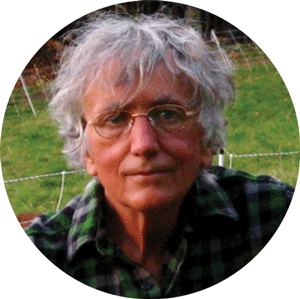My Life Over and Under the Microscope as a Cancer Scientist and Patient
Cancer is a genetic disease—that is, it is caused by alterations (mutations) in the genetic information encoded in genes that determine the structure and function of proteins and other macromolecules. In cancer cells, these alterations lead to uncontrolled cell division that results in the formation of solid tumors or in excessively high levels of certain types of blood cells. Recent studies indicate that somewhat unexpectedly, the majority of genetic alterations leading to cancer arise as a consequence of mistakes that occur in the duplication of the genetic material—that is, DNA—required for cells to obtain a complete and accurate set of genetic instructions when they divide. However, cancer is also caused by mutations in the DNA of germline cells that are inherited from parents from one generation to the next. This includes, for example, mutations in the breast cancer genes BRCA1 and BRCA2, which cause breast and ovarian cancer in women at an elevated frequency. Many clinicians are not aware of the fact that inherited mutations in the BRCA1 and BRCA2 genes can also cause other types of cancer, including prostate and breast cancer in men.
For the past 28 years, Bill’s laboratory’s research has focused on genetic pathways that are frequently altered in cancer, including those that require of the function of the proteins encoded by the BRCA1 and BRCA2 genes. Not surprisingly given a strong history of cancer in his family, in 2013 Bill was diagnosed by his colleagues at the major cancer center where he works (Roswell Park Comprehensive Cancer Center) with an aggressive case of prostate cancer driven by a pathogenic mutation in BRCA2. In addition to his treatment at Roswell Park, he has also been treated at Sloan-Kettering Cancer Institute in New York City and participated in clinical trials at Dana-Farber Cancer Institute in Boston. In his talk he will describe his experiences as a cancer patient and as a cancer scientist who has spent most of his career studying defects in genetic pathways that lead to cancer. His talk will include descriptions of his efforts to educate clinicians and patients on the genetics of prostate and other types of cancer.
Presented by:
Bill Burhans, Ph.D.

Senior Cancer Scientist, Roswell Park Cancer Institute
View SlidesNavigate the Site
2025 GoldLab Symposium
Save the date!
Please join on May 15-16, 2025Presenters In The News
Contact Info










